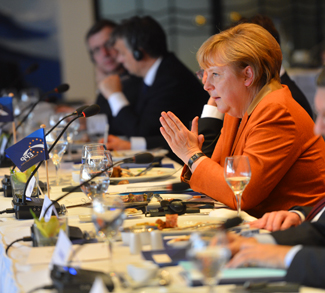Summary
Catalans voted on Sunday in a disputed referendum that asked whether the region should become independent. The poll was non-binding, at least initially, and the Spanish authorities did everything possible in the lead-up to block the vote or at least minimize its impact.
Their failure on both counts is evident in the photos and headlines coming out of Catalonia over the weekend. Hundreds of people were injured as federal police moved in on voting stations deemed illegal by the authorities in Madrid. In all, around 850 people were sent to hospital, including 33 police officers.
The chaos threatens to galvanize Catalans who had previously been on the fence about independence. Before the poll was held, only a minority of people supported independence. That may have changed after pictures from across Catalonia brought the spectre of state-sanctioned violence reminiscent of the Franco years.
For its part, the Catalan regional government is now trying to seize the initiative by drafting a unilateral declaration of independence.
It would appear that this latest chapter in Catalonia’s push for independence is just getting started.
Background
Catalonia is a region in northeast Spain with its own distinct language and culture. It has been a part of the Spanish state since the War of Spanish Succession at the turn of the 18th century, and has often struggled to maintain its own distinct traditions. In 1932, a statute of autonomy was passed, giving the region strong self-government and control over education policy. This statute was revoked during the Franco era, when Catalonia experienced a wave of violent repression at the hands of Madrid. It has since been re-instituted in the democratic era.




